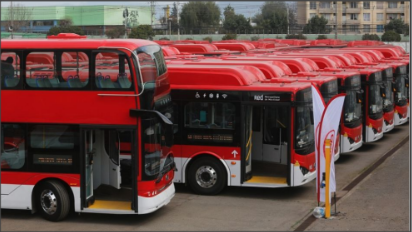Publications
-
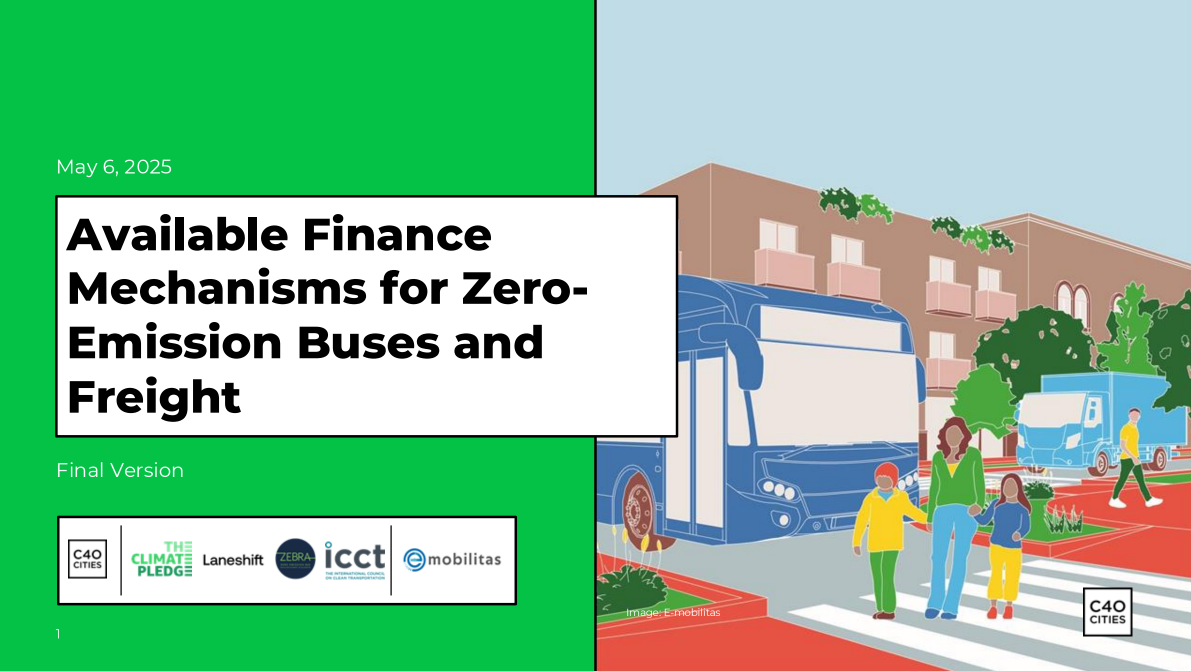
Available Finance Mechanisms for Zero-Emission Buses and Freight
This report provides a comprehensive analysis of available financial mechanisms for zero-emission buses (ZEB) and freight (ZEF) in Latin America, focusing on Chile, Colombia, Ecuador, Brazil, and Mexico. It highlights the dominance of debt financing, the critical role of development banks (MDBs and NDBs), and the limited options for small operators and individuals. Key findings [...]
Read More... from Available Finance Mechanisms for Zero-Emission Buses and Freight
2025Reporte-busesfinancefreightLatin America
PT EN ES -
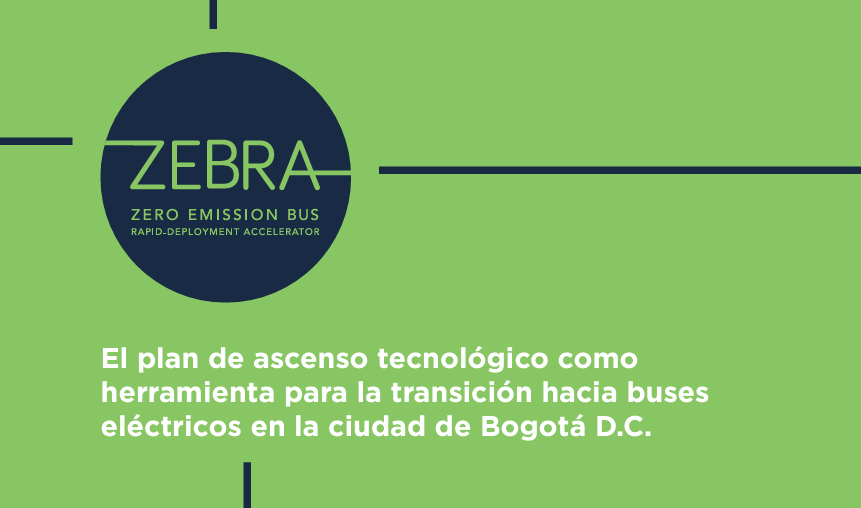
The Technology Development Plan as a tool for the transition to electric buses in the city of Bogotá D.C.
This case study is part of a three-part series that analyzes Bogotá’s strategy as a Transformative Urban Mobility Initiative (TUMI) E-Bus Mission mentor city, based on an examination of the following aspects of electric buses: technological progress (including details of pilot tests, cycles, and routes); business models (considering innovations that have been widely implemented for [...]
2023Case StudyBogotáColombiaZEBRA
EN ES -
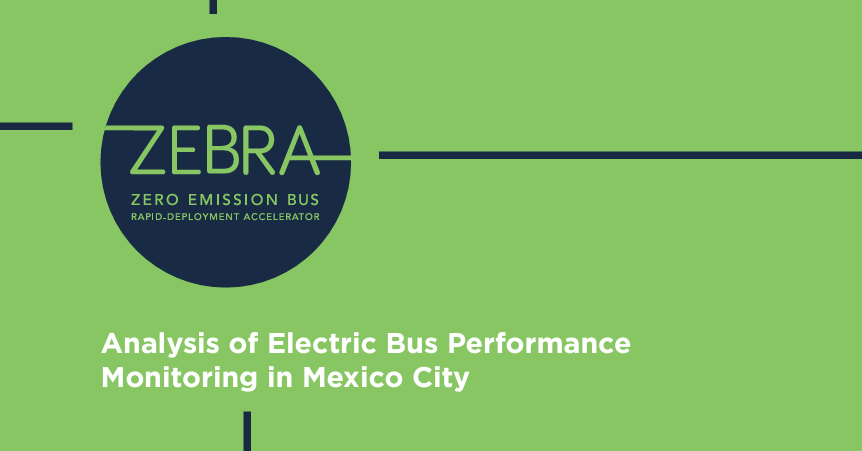
Analysis of Electric Bus Performance Monitoring in Mexico City
This report analyzes the performance and energy consumption of an electric articulated bus over a 10-month period in Mexico City. Making use of telematics equipment, the daily operation of the bus was monitored to evaluate the operational performance of the vehicle. [...]
Read More... from Analysis of Electric Bus Performance Monitoring in Mexico City
2023ReportCiudad de MéxicomonitoringpilotZEBRA
EN ES -
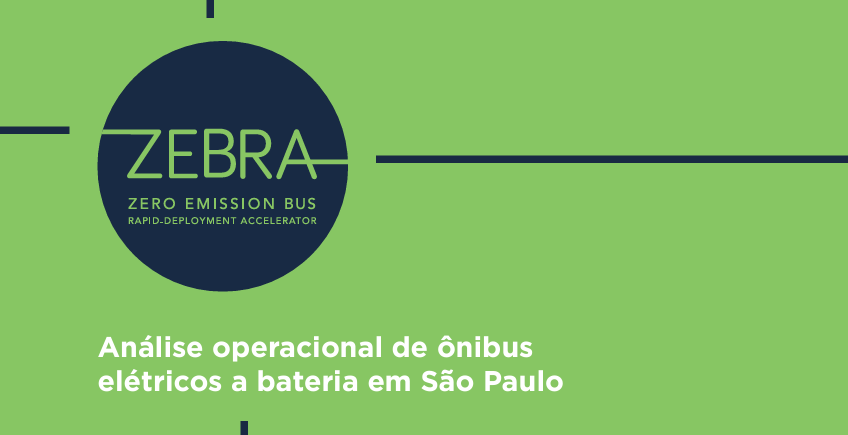
Operational analysis of battery electric buses in São Paulo
This report analyzes the performance of two electric buses in the pilot project fleet, monitored throughout 2021, considering operating data and energy consumption. The analyses presented seek to characterize the performance of buses over time under different operating conditions, but do not establish cause-and-effect relationships between the variables, nor do they quantify the impact of [...]
Read More... from Operational analysis of battery electric buses in São Paulo
2023ReportmonitoringpilotSão Paulo
PT EN -
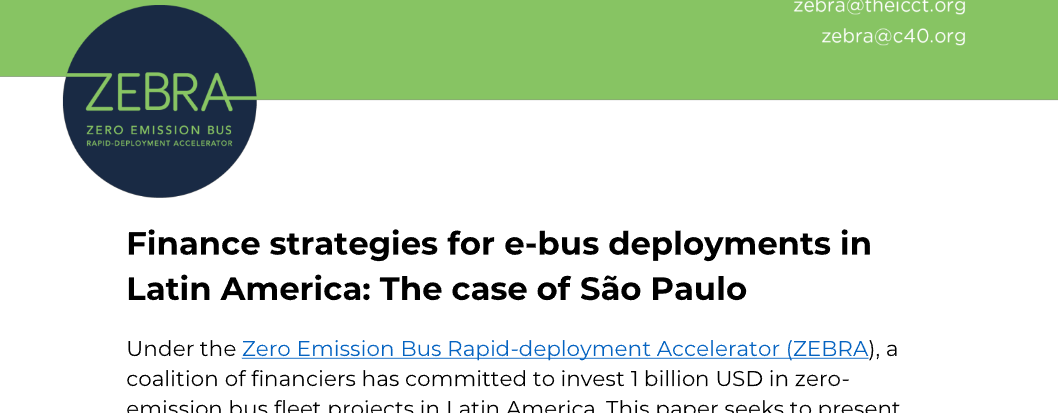
Finance strategies for e-bus deployment in São Paulo
This case study outlines how the investment will be channeled into on-the-ground projects and suitable business models for scaling up ZE bus adoption and participation from investors in São Paulo. More broadly, the study aims to provide investors, policymakers, manufacturers, or ZE bus operators with an understanding of the financial mechanisms available for widespread ZE [...]
Read More... from Finance strategies for e-bus deployment in São Paulo
2023Case StudyfinanceSão Paulo
PT EN -

Leading a clean urban recovery with electric buses: Innovative business models show promise in Latin America
As governments around the world face a dramatic loss of revenues as a result of the lockdowns imposed to curb the progression of COVID-19, public transit services around the world are in real danger. The high upfront cost of electric buses means that these projects risk being particularly impacted by reduced municipal budgets. However, their [...]
2020ReportfinanceIFCLatin AmericaMarket Transition
EN -
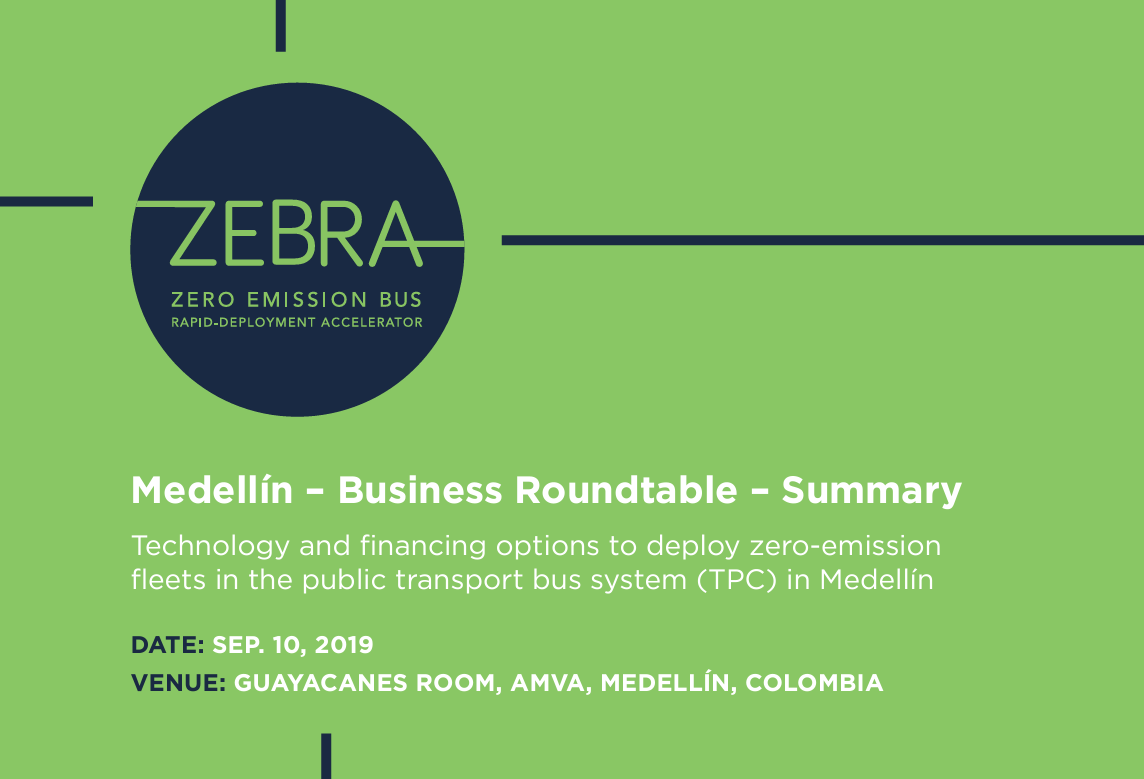
Medellín – Business Roundtable – Summary: Technology and financing options to deploy zero-emission fleets in the public transport bus system (TPC) in Medellín
This business roundtable was held with local authorities, public transportation operators, bus manufacturers, and financial entities to discuss technology and financing options to deploy zero-emission fleets in Medellín and the Metropolitan Area of Valle de Aburra (AMVA). The event was designed to connect different actors with the goal of promoting business deals to modernize the [...]
2019ReportBusinessColombiaMedellín
EN -
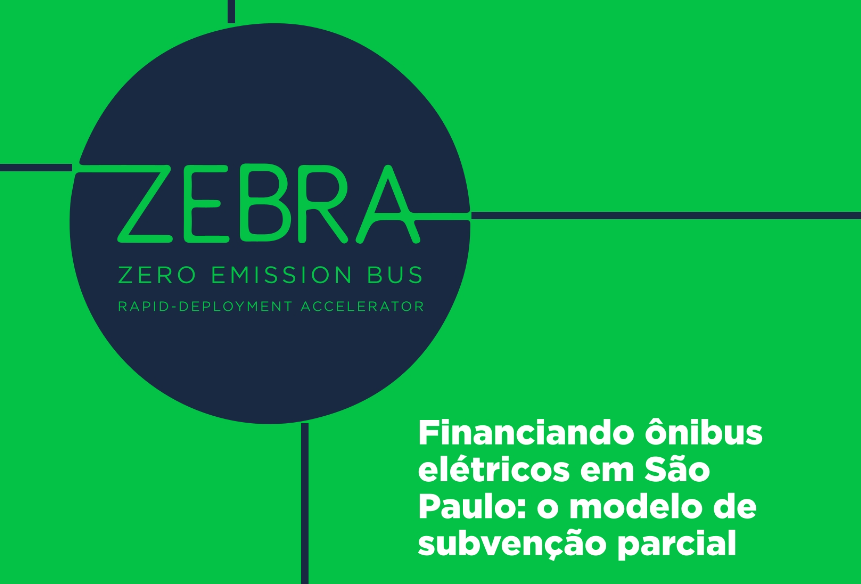
Financing e-buses in São Paulo: the partial subvention model
Este documento resume os principais aspectos financeiros, legais, contratuais e operacionais que possibilitaram o desenvolvimento e implementação do modelo de subvenção parcial aplicado ao financiamento de ônibus elétricos (e-bus) em São Paulo. [...]
Read More... from Financing e-buses in São Paulo: the partial subvention model
2024Case StudyfinanceLatin AmericaMarketSão Paulo
PT EN ES -
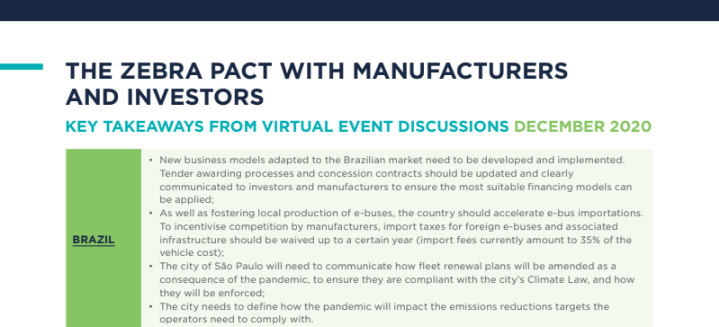
ZEBRA pact with manufacturers and investors
Key takeaways from virtual event discussions December 2020 [...]
Read More... from ZEBRA pact with manufacturers and investors
2020SummaryLatin AmericaMarketZEBRA
EN -
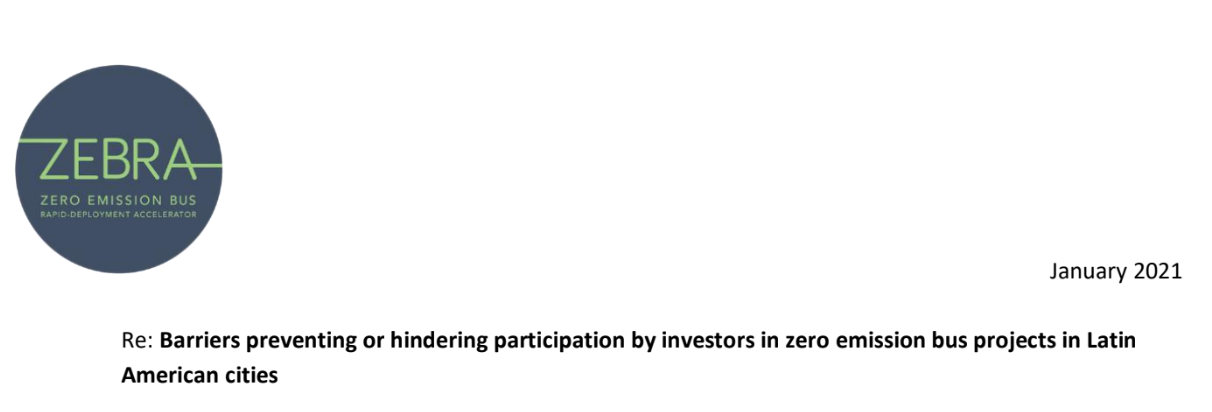
Memo: ZEBRA Investors Working Group – Barriers Identified
This document aims to lay out some of the key barriers that have been highlighted by investors and shouldnot be interpreted as prescriptive. [...]
Read More... from Memo: ZEBRA Investors Working Group – Barriers Identified
2021Memofinance
EN -
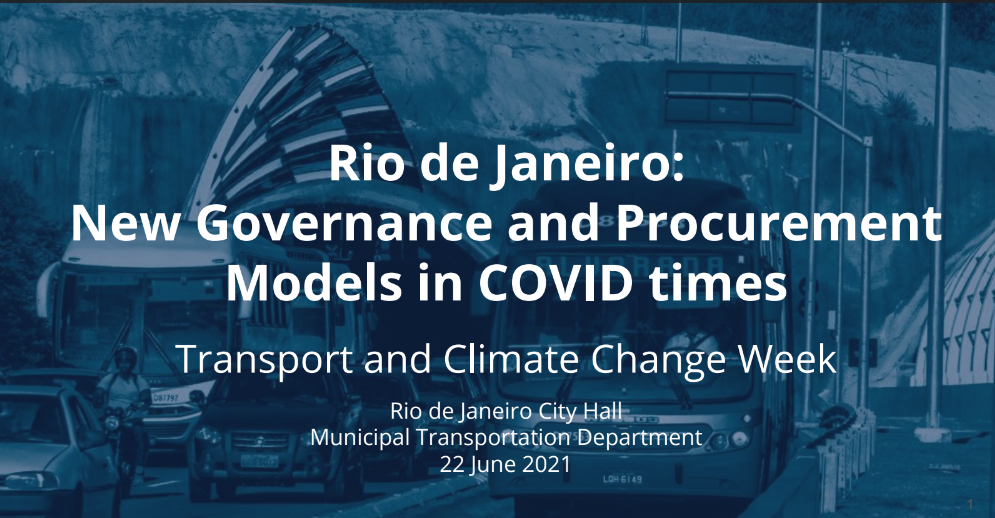
Rio de Janeiro: New Governance and Procurement Models in COVID times
Rio de Janeiro City Hall’s presentation on the challenges imposed by the COVID-19 in the conventional system and BRT and its opportunities for eletrification. [...]
Read More... from Rio de Janeiro: New Governance and Procurement Models in COVID times
2021PresentationprocurementRio de Janeiro
EN -
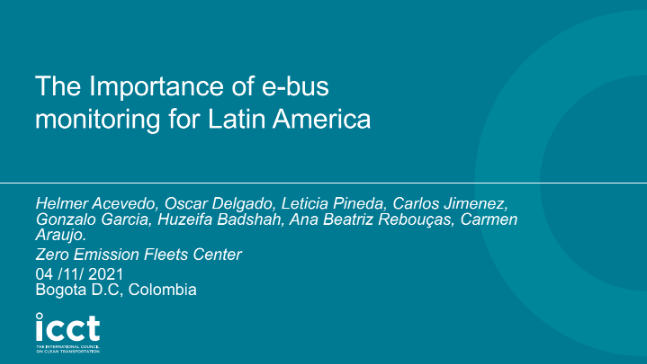
The Importance of e-bus monitoring for Latin America
ICCT presentation on the importance of using telematics to monitor the performance of e-buses. [...]
Read More... from The Importance of e-bus monitoring for Latin America
2021PresentationIndustrytelematics
EN -
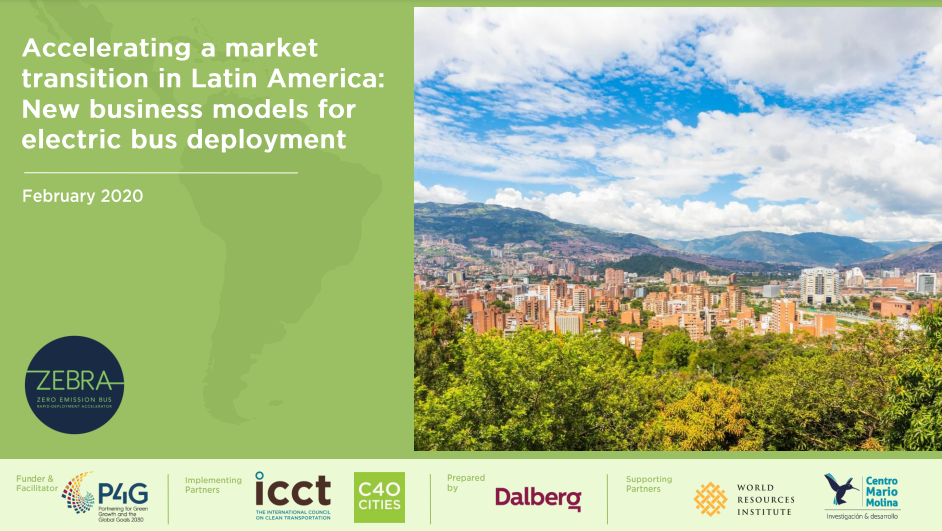
Accelerating a market transition in Latin America: New business models for electric bus deployment
This report maps and evaluates the diverse municipal bus ownership and operational models currently in use in cities across Latin America. Based on the findings, the report proposes a set of commercial models which can support the deployment of electric buses in the region, which have been tested for viability in Medellín and Mexico City. [...]
2020Reportbusiness modelsLatin America
EN -
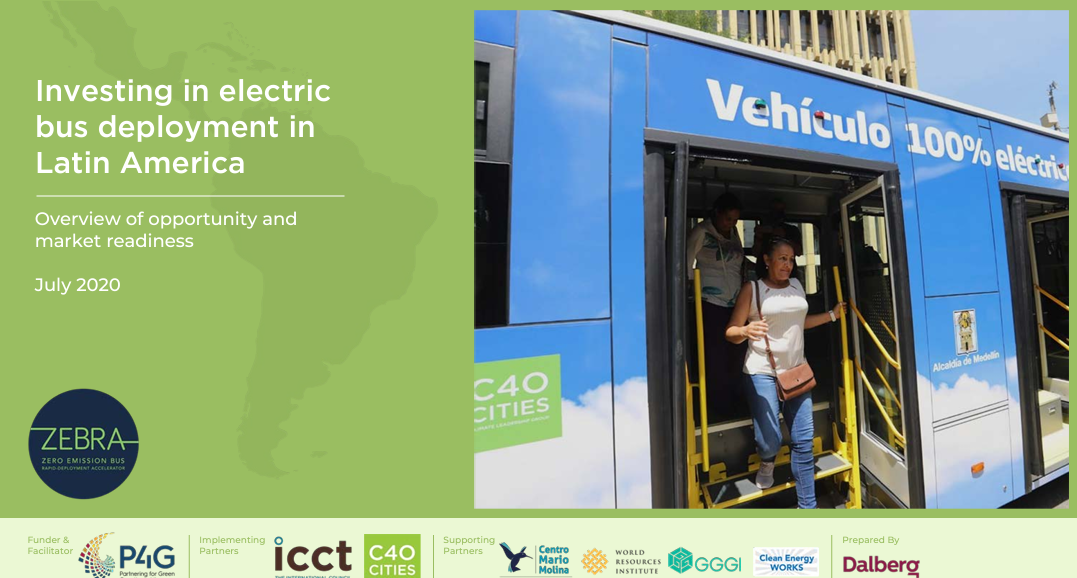
Investing in electric bus deployment in Latin America: Overview of opportunity and market readiness
This report aims to assist the ZEBRA Partnership with its goal of accelerating the transition to zero-emission buses across Latin American cities by highlighting the business case for electric buses, the current state of the market, and its potential for growth. There are investment synopses for Bogotá, Santiago, Mexico City, São Paulo and Medellín. [...]
2020ReportAmérica Latinafinance
EN -
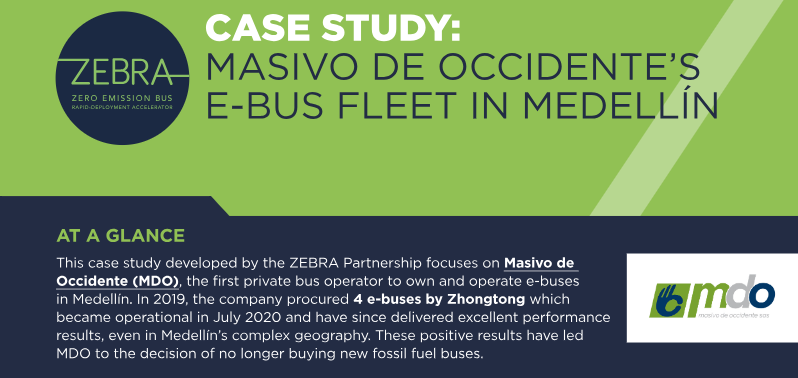
Case Study: Masivo de Occidente’s e-bus fleet in Medellín
This case study focuses on Masivo de Occidente (MDO), first private bus operator to own and operate e-buses in Medellín. [...]
Read More... from Case Study: Masivo de Occidente’s e-bus fleet in Medellín
2021Case StudyColombiaMedellín
PT EN ES -
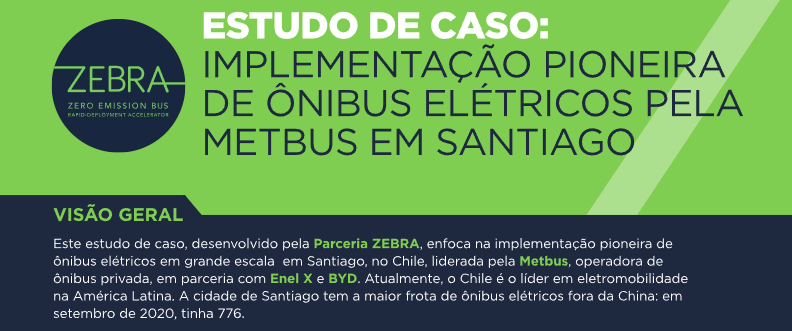
Case Study: Metbus pioneering e-bus deployments in Santiago
This case study focuses on the pioneering large-scale e-bus deployments in Santiago, Chile, led by Metbus, a private bus operator, in partnership with Enel X and BYD. [...]
Read More... from Case Study: Metbus pioneering e-bus deployments in Santiago
2020Case Studye-busespilotSantiago
PT EN ES -
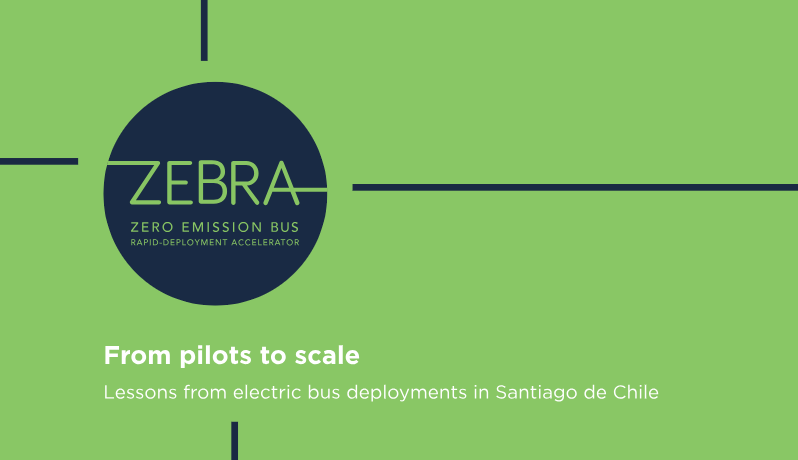
From pilots to scale: Lessons from electric bus deployments in Santiago de Chile
This case study aims to analize how Santiago becomes a global leader in the adoption of electric public transport, the lessons learned and what is the future of public transport in Chile. [...]
Read More... from From pilots to scale: Lessons from electric bus deployments in Santiago de Chile
2020Case Studye-busespilotSantiago
EN -
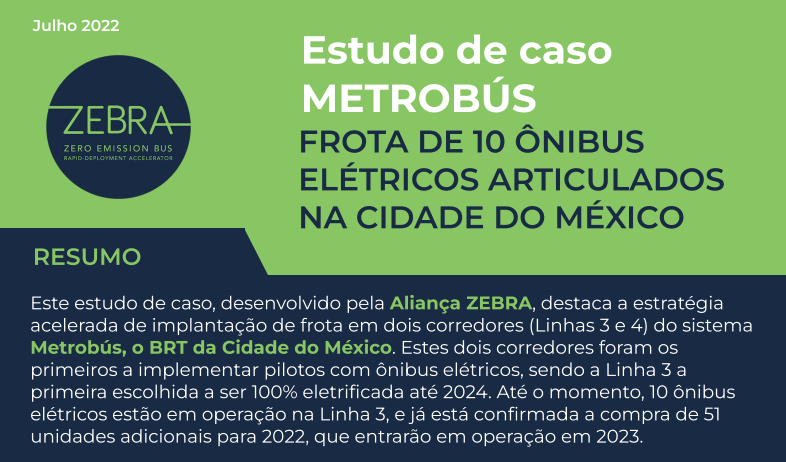
Case study METROBÚS: fleet of 10 articulated electric buses in mexico city
This case study focuses on the analysis of the accelerated deployment strategy for fleets in two corridors (Lines 3 and 4) in Mexico City’s BRT system, Metrobús. [...]
Read More... from Case study METROBÚS: fleet of 10 articulated electric buses in mexico city
2022Case StudyBRTMexicoMexico City
PT EN ES -
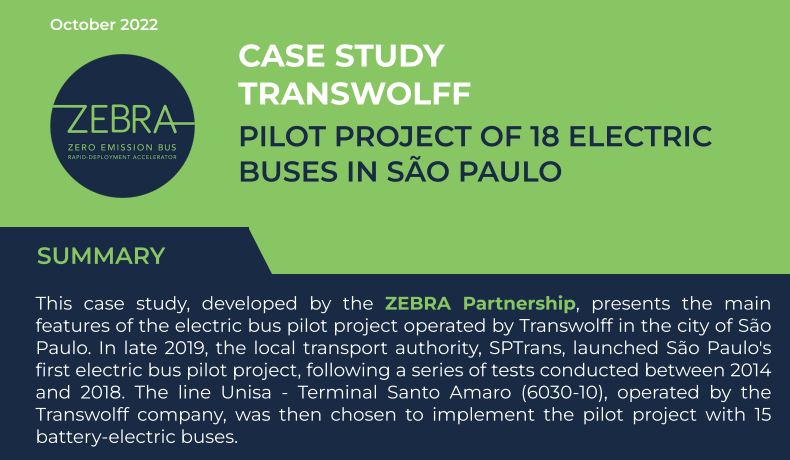
Case Study Transwolff: Pilot Project of 18 Electric Buses in São Paulo
This case study presents the main features of the electric buses pilot project operated by Transwollf in the city of São Paulo. [...]
Read More... from Case Study Transwolff: Pilot Project of 18 Electric Buses in São Paulo
2022Case StudyBrazilSão Paulo
PT EN ES -
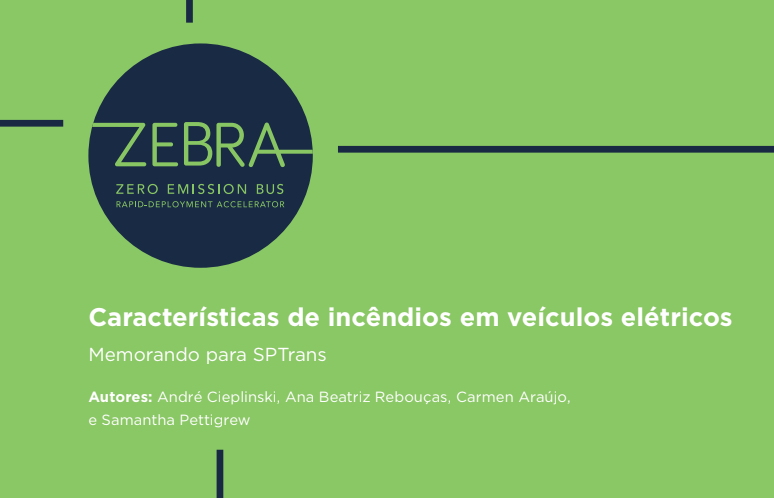
Characteristics of fires in electric vehicles
This memo aims to provide information on fire incidents identified in electric buses and their possible causes. [...]
Read More... from Characteristics of fires in electric vehicles
2022Memoe-buses
PT EN ES -

Investment Guide for Zero-Emission Buses in Brazil
This guide aims to attract new investments for implementing Zero Emission (ZE)buses in Brazil, focusing on battery-powered models.Therefore, the term “ZE-bus” will refer to this specific type of bus. [...]
Read More... from Investment Guide for Zero-Emission Buses in Brazil
2023ReportBrazilfinance
PT EN -

Debt financing for zero emission buses in Latin America
This analysis aims to understand how cities can work with banks in LATAM to improve their ability to finance ZE buses. [...]
Read More... from Debt financing for zero emission buses in Latin America
2023ReportfinanceLatin America
EN -
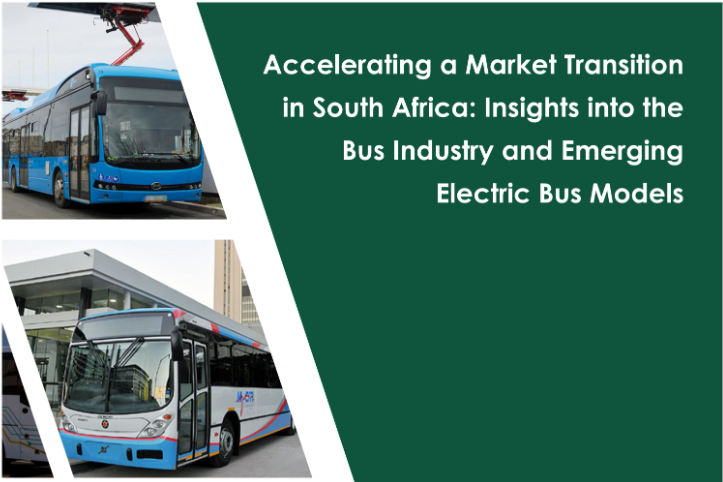
Accelerating a market transition in South Africa: Insights into the bus industry and emerging electric bus models
Focusing on Durban, Cape Town, Ekurhuleni, Johannesburg and Tshwane, this explains the current bus and electric bus (e-bus) landscape in South Africa, e-bus market potential, and models to accelerate e-bus deployment. More specifically, it presents the results of research examining bus ownership and service provision models, key stakeholders in both public and private sectors, the [...]
2024Reporte-busesMarketSouth Africa
EN -
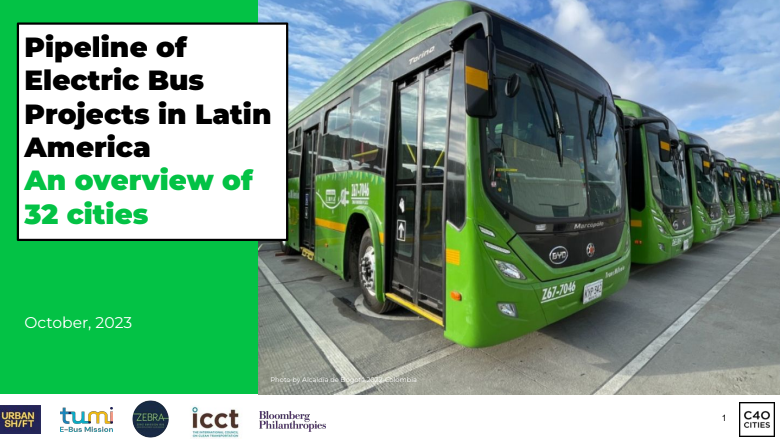
Pipeline of Electric Bus Projects in Latin America: An overview of 32 cities
To understand how electric bus projects are developing in the Latin American region and the plans that cities have for the electrification of public transportation fleets. This will provide a better overview to investors and financiers and help bridge the link between the needs of the cities with available financing supply. [...]
Read More... from Pipeline of Electric Bus Projects in Latin America: An overview of 32 cities
2023Reporte-busesfinanceLatin America
EN ES
